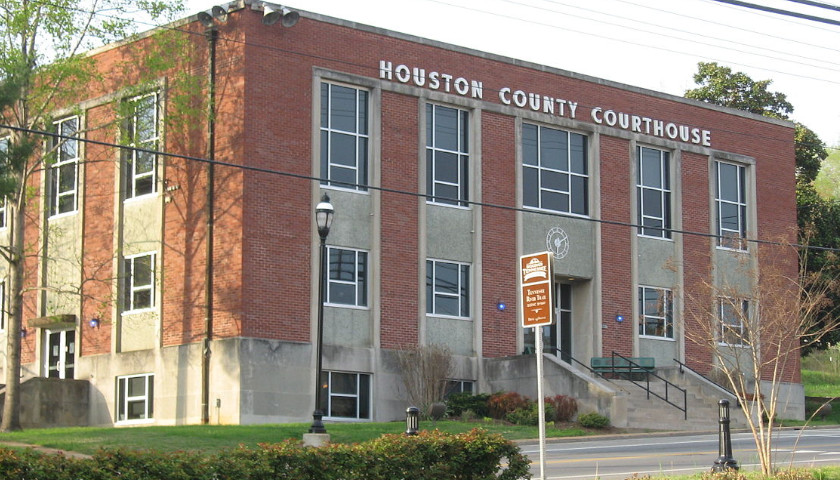Houston County commissioners voted in favor of a resolution Monday night opposing school vouchers.
They did so resoundingly, said Commissioner Ann Fielder.
Twelve commissioners voted yes on the resolution, but one commissioner abstained from voting, Fielder told The Tennessee Star Tuesday.
Fielder said she was one of the 12 to vote yes.
The commissioner who abstained — Vickie Reedy — is the wife of Tennessee State Rep. Jay D. Reedy, R-Erin.
Fielder said she and other commissioners voted as they did at the behest of Houston County Director of Schools Kris McAskill.
“Our superintendent of schools was there. She got up and said that this (school vouchers) would take state money and give it to private schools,” Fielder said.
“She said this even though we don’t have any private schools currently in our county. But she said if the private schools begin to get state money then we could have some pop up. She also said she didn’t want to lose any of our students (to this).”
McAskill presented no empirical studies or other research to back up her assertions, Fielder told The Star.
Commissioners plan to submit a letter to state legislators notifying them that they oppose school vouchers, Fielder said.
Otherwise, the resolution has no force of law behind it.
“It’s just to let the legislators know how we feel,” Fielder said, adding McAskill and the commissioners discussed the matter for about 15 minutes Monday.
“No one said anything bad about the resolution,” Fielder said.
“But no one said we should not send the letter saying we are against it.”
Fielder said none of her constituents have otherwise reached out to her to discuss school vouchers.
When contacted, Vickie Reedy, a teacher in the Houston County School District, had little to say, including why she voted as she did.
Reedy’s husband did not immediately return a request for comment Tuesday.
Fielder, meanwhile, said the school district currently has about 1,200 students.
According to the most recent U.S. Census numbers, Houston County has a population of 8,213 people, which is a slight reduction from the 8,426 number it had in 2010.
About 22 percent of its population is under 18.
Meanwhile, about 77 percent of the county’s population has a high school diploma. About 11 percent have a bachelor’s degree.
The county’s poverty level is around 16 percent.
Houston County also has a median household income of about $42,000 per year, according to the Census.
– – –
Chris Butler is an investigative journalist at The Tennessee Star. Follow Chris on Facebook. Email tips to [email protected].






[…] Resolution” prepared by TSBA and provided to local school boards has been considered or passed by Houston County, Oak Ridge, Wilson County, Jackson-Madison County, Metro Nashville and Rutherford County, as […]
[…] As The Tennessee Star also reported, Houston County commissioners formally oppose school vouchers. […]
[…] The Tennessee Star reported this week, Houston County commissioners formally oppose school […]
I had an intense discussion with a family member who is a public school teacher about the voucher system. After about twenty minutes I asked what is the major difference in our positions. My family member gave a perplexed look and could not understand why I asked that question.. I responded by stating that every reason she did not like the voucher system was how it affected the teacher and every point I made was how the voucher system would benefit the student.. just what are schools for, anyway?
It is all about controlling the money and the minds of our children. It appears that most county commission simply act as rubber stamps for the public school boards.
The title of this article is misleading. The people in Houston County did not reject school vouchers, 12 county commissioners did. Fear that the public school would lose money is real. Should vouchers become a reality, the local and public school officials will lose power and control over the schools. Elected officials and teacher unions don’t want that to happen. You can be sure they will spend big money from letting that happen.
How a voucher system is designed is of major importance. TO BE SUCESSFUL, it must have safeguards that do not allow a mass exit from public schools (which is unlikely but still a possibility). One possibility might be to implement a voucher plan incremental by grade over a number of years. Another option would be to start voucher amounts low and increase them as the system matures.
A voucher system would help home schoolers and those who do not like the hidden political agenda that has become so obvious in public schools. Voucher system would introduce competition for the best teachers Private schools would be in a better position to pay their teachers more thus making them more competitive to hire the best teachers. It could even reduce the pressure on counties to build new schools as county populations expand.
What is especially appealing about a well thought out voucher plan is that parents would have control over what school system education funds would be used to educate their children. If they did not like the school books chosen in a public school they would be in a much better position to chose a private school that uses state approved books that they do approve of.
In the end, the question becomes who do you think will do a better job controlling the education of our children? BIG government or individual parents.